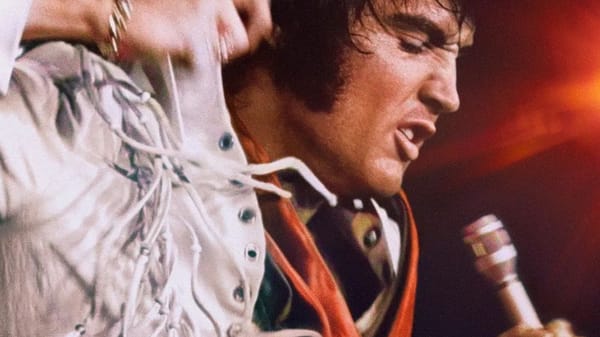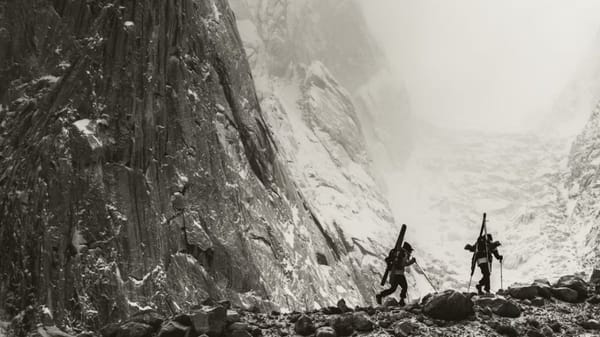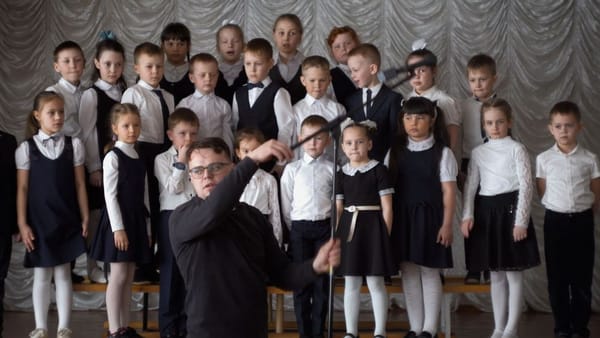Night in West Texas (dir. Deborah S. Esquenazi)

This is not a review of The Yogurt Shop Murders, the four-part documentary series about an infamous Texas murder where people were sent to prison based on false confessions. It’s not a review of that, no, but I found it kind of curious that both it and Deborah S. Esquenazi’s Night in West Texas (which I watched within a week of each other) have come out this year with a similar thread of investigative neglect and injustice. In that HBO production directed by Margaret Brown (who did, I feel, much better work with similar themes of memory and contemporary reflections of trauma with Descendent in 2022), there is a line very early on spoken by one of its wrongfully-imprisoned suspects who is now a free man. He says, “We’re doing a documentary ‘cause I just got off death row.” And you know what? I felt that.
It's a good reason, I suppose, but The Yogurt Shop Murders (totalling roughly four hours of television) and Night in West Texas (a smidge over 80 minutes including credits) take very different angles and I feel the latter has the clear upper hand. Now, the true crimes at their centres are very different so it makes sense that their filmmakers don't take the same narrative tact, I just thought it was an interesting parallel. In Esquenazi’s film—modest and emotionally compelling as was her previous title with similar themes, Southwest of Salem: The Story of the San Antonio Four—a gay Apache man struggles to be exonerated for a crime he did not commit but spent 20 years in prison for. His wish is simple, he no longer wants to merely be out of prison on parole, but completely absolved and allowed to leave Texas to see his family. He is supported by the Innocence Project, and in particular Allison Clayton, whose work makes up a large proportion of the film.
In fact, one of the things that I liked best about this film was how it didn’t even bother with the nature of whether James Harry Reyos committed the crime or not. They know and pretty quickly we know, too, that Reyos is innocent of the murder of a closeted, abusive Catholic priest in an Odessa hotel in 1981 (trigger warning for that content quite clearly). The nature of the crime, too, is largely glossed over, informing us of the bare necessities when required and letting the focus linger more so on the justice side of things.

In that sense, some lovers of true crime documentaries may feel Night in West Texas leaves them longing. The crime is one of the least interesting things about it! Instead, Esquenazi focuses on Reyos himself and the struggles of being a queer First Nations man in times of great societal flux. A lot has changed from 1981 to 2025, something those involved with the case today greatly understand, but it’s an essential part of the story and one worth exploring more so than the ins and ours of a vicious murder.
The “why did he confess” narrative is always tricky to navigate because there is rarely a clear and concise answer. But when the audience learns of Reyos’ story, it begins to make more sense. And when that comes into finer clarity, you then have to turn your mind to the justice system and how they were able to get away with charging and ultimately sending to prison somebody who was so clearly incapable of having committed the crime at hand. It’s sticky and complex and I found this film’s focus on its subject’s demons to be a sombre take on queer persistence in the face of a lived experience that did everything to convince Reyos that he had committed the crime.
Night in West Texas probably could have been a multi-part series. Particularly as names begin to enter the story of who might have actually been guilty of the priest’s murder. It would not have been better for it. Its relative briskness at the hands of an editing team made up of Leah Marino (consulting editor), Laura Colwell (additional editing), Nathan Berkowitz and Marcos Wondracek (assistant editors) that is a big part of why the film works as well as it does. Its use of archival footage of Native Americans living on the land and being subsumed into white American culture through ‘cowboys and Indians’ and stealing of land onto to then be forced to work on it for whatever pittance they were paid might have come off as trite elsewhere, but here it adds vital colour to Reyos’ story and the filmmakers’ desire to suggest his is not terribly unique—murder conviction notwithstanding. Society has a way of making minorities feel shame for things they have no choice in and then that shame is weaponised against them. It’s a strong film, albeit a small one that, somewhat appropriately, mirrors that of its setting. I was impressed and continue to be impressed by Esquenazi’s ability to find moments of queer resilience and power from stories of oppression and injustice inflicted upon these communities of colour.
If you would like to support documentary and non-fiction film criticism, please consider donating by clicking the above link. Any help allows me to continue to do this, supports independent writing that is free of Artificial Intelligence, and is done purely for the love of it.



